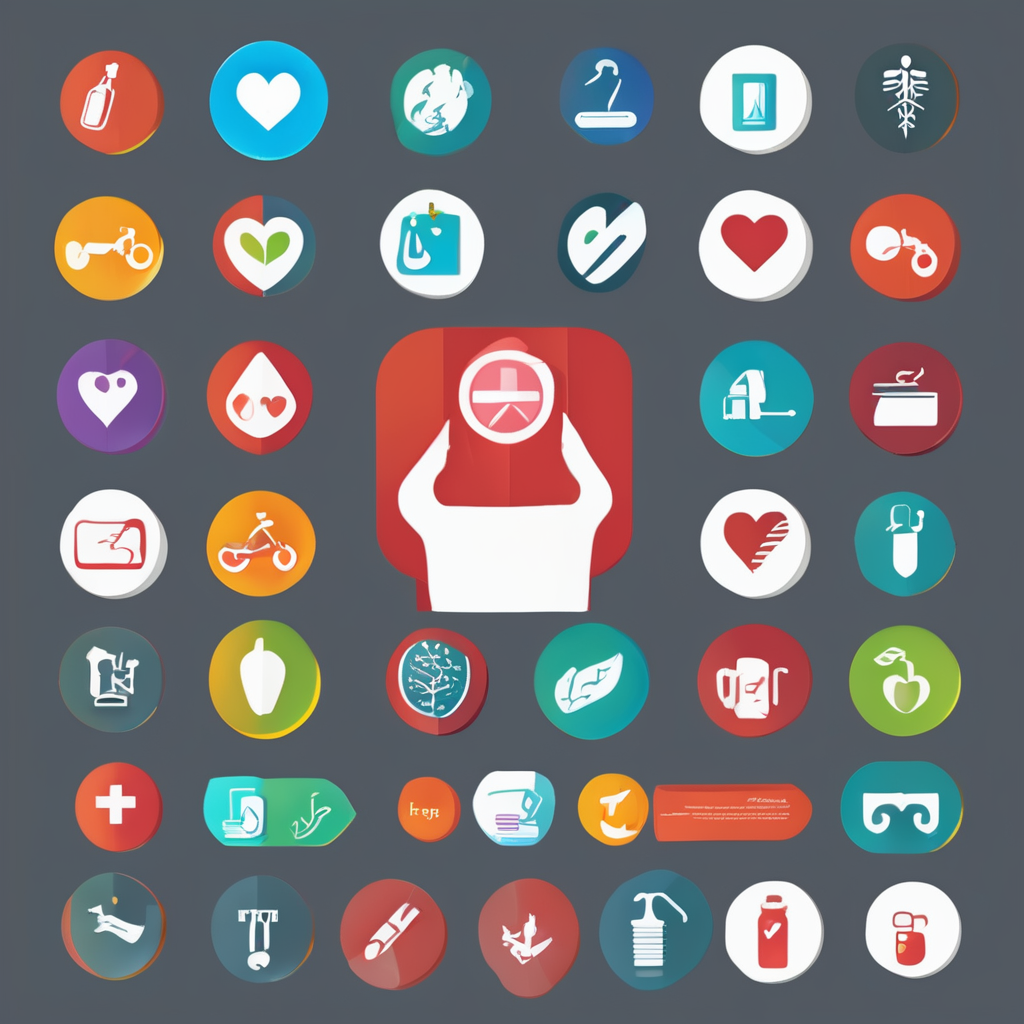Overview of Sleep Apnea and Cognitive Function
Sleep Apnea is a common sleep disorder characterized by repeated interruptions in breathing during sleep. It primarily exists in two types: Obstructive Sleep Apnea (OSA), where throat muscles relax excessively, and Central Sleep Apnea, where the brain doesn’t send proper signals to muscles controlling breathing.
The neurocognitive effects of sleep apnea can be significant, impacting memory, attention, and executive function. This disorder often results in fragmented sleep, leading to cognitive impairment due to chronic low oxygen levels and sleep disturbances.
Topic to read : Elevating well-being: how digital tools enhance mental health for remote workers
Researchers have observed the relationship between sleep quality and cognitive performance. Poor sleep quality associated with sleep apnea interrupts the deep, restorative sleep stages, vital for cognitive processing. Consequently, individuals often experience problems with concentration and decision-making, alongside mood disturbances.
Understanding these connections highlights the importance of addressing sleep apnea not only for physical health but for cognitive well-being. Optimal management of sleep apnea is crucial in enhancing cognitive function and overall quality of life. Recognizing sleep disorders is the first step toward mitigating their impact on mental processes.
Additional reading : How High-Altitude Living Influences Chronic Obstructive Pulmonary Disease: Understanding the Effects
Mechanism of Action of CPAP Therapy
Continuous Positive Airway Pressure (CPAP Therapy) is the most commonly prescribed treatment for obstructive sleep apnea, wherein a device delivers constant airflow through a mask worn during sleep. This airflow pressure keeps the airways open, preventing the airway collapse that characterizes the disorder.
The primary treatment mechanism of CPAP involves elevating oxygen levels. By maintaining open airways, CPAP prevents the drop in blood oxygen that typically accompanies apnea events. This stabilization of oxygen levels is crucial for the improvement of sleep quality and overall health. Beyond simply ensuring uninterrupted breathing, CPAP therapy influences sleep architecture by allowing a return to regular sleep stages. This includes the deep stages of non-REM and REM sleep critical for cognitive functions.
Furthermore, improved CPAP-induced sleep quality allows the brain to undergo necessary restorative processes. These processes support neurocognitive recovery, often enhancing cognitive recovery seen in patients over time. Understanding how CPAP therapy facilitates these bodily changes can help patients anticipate the benefits and challenges associated with its use, ultimately aiding in better adherence and outcomes.
Research Findings on Cognitive Improvements Post-CPAP Use
Recent studies have delved into the cognitive improvements associated with Continuous Positive Airway Pressure (CPAP therapy). Research indicates that patients using CPAP therapy exhibit enhanced cognitive performance. Importantly, a statistical analysis underscores noticeable gains in memory and executive functions among those using CPAP. One pivotal study demonstrated that cognitive improvements were significant after merely a few weeks of adherence to CPAP therapy.
Moreover, expert opinions unanimously emphasize the significance of these findings. Researchers noted that the cognitive enhancement correlated directly with better sleep quality and restored oxygen levels, facilitated by CPAP usage. The research studies reinforce the theory that uninterrupted sleep, supported by CPAP, is key to recovering cognitive function affected by sleep apnea.
In evaluating these results, experts maintain the crucial role of consistent CPAP use in achieving cognitive recovery. The CPAP effects are substantial, with users not only experiencing improved daily functioning but also a notable uplift in quality of life. The compelling evidence thus encourages individuals with sleep apnea to consider CPAP therapy as a viable pathway to enhance and maintain cognitive health.
Patient Experiences and Testimonials
Understanding individual accounts of CPAP therapy use can be informative, presenting a real-world perspective on its effects and challenges. Numerous patient testimonials emphasise notable cognitive benefits after starting CPAP therapy.
Positive Cognitive Changes Reported
Many individuals have documented a heightened sense of mental clarity, reporting significant enhancements in memory and focus. These cognitive improvements are often attributed to improved sleep quality, as users are experiencing more restful nights. This aligns with scientific findings that underscore the cognitive advantages of uninterrupted sleep facilitated by CPAP.
Challenges During Transition to CPAP
Despite these benefits, transitioning to regular use of CPAP therapy isn’t always seamless. Common complaints include discomfort with wearing the mask or nasal congestion, which might initially deter users. Over time, most patients adapt, but this adjustment period is crucial for adherence and achieving desired outcomes.
Variability in Treatment Outcomes
Patients with similar levels of cognitive impairment due to sleep apnea may experience different trajectories toward cognitive recovery. This variability can be impacted by factors such as baseline health conditions and compliance levels. Learning from diverse patient experiences highlights the importance of personalised care plans to maximise the therapy’s cognitive benefits.
Side Effects and Considerations of CPAP Therapy
Using Continuous Positive Airway Pressure (CPAP Therapy) can occasionally lead to side effects, which may influence patient compliance. Understanding these CPAP side effects is crucial for individuals under treatment. Common issues include mask discomfort, nasal congestion, and even dry mouth. These side effects might discourage consistent use, yet they are often manageable with minor adjustments.
For better patient considerations, healthcare professionals recommend ensuring a proper mask fit to alleviate discomfort. Additionally, using a humidifier with CPAP devices can address dryness and nasal congestion. It’s essential for patients to communicate concerns with their healthcare providers to find tailored solutions.
Treatment challenges occasionally arise, warranting regular follow-ups to modify and adjust CPAP settings as needed. These follow-ups ensure the effectiveness of the therapy and help maintain compliance.
For optimal results, it’s vital that patients adhere to treatment challenges. This can be supported by a comprehensive plan involving healthcare professionals, incorporating regular fittings, and monitoring the therapy’s progress. By being aware of potential side effects and having strategic responses, patients are more likely to achieve and maintain the cognitive and health benefits of CPAP therapy.
Practical Advice for Patients
For individuals undergoing CPAP therapy, adhering to the treatment is crucial for achieving cognitive health benefits. To enhance comfort and improve adherence, follow these practical tips:
-
Fit and Comfort: Ensure the CPAP mask fits properly, as a good fit prevents air leaks and reduces discomfort. Different mask styles are available, so consult with healthcare providers to find the most suitable one.
-
Humidity Control: Use humidifiers to minimise nasal dryness and congestion often associated with CPAP use. Maintaining optimal humidity can significantly improve comfort during sleep.
-
Manage Expectations: Understanding that adaptation can take time may help in adjusting to the therapy. Patience and regular use are key to yielding positive cognitive impacts over time.
Lifestyle changes can further support the benefits of CPAP therapy. Regular physical activity, a balanced diet, and maintaining a healthy weight can amplify the therapy’s effects. Additionally, accessing supportive resources can be beneficial. Engaging with patient forums and support groups provides camaraderie and valuable tips from peers who have experienced similar challenges. These collective strategies are instrumental in enhancing CPAP compliance and achieving sustained cognitive improvement.






